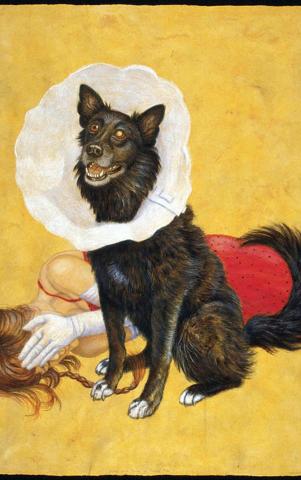Animal Studies: Representation, Critique, Engagement
Animal Studies is an unsettled and unsettling field—one that continues to develop within and across a great variety of disciplines, including affect studies, behavioral sciences, disability studies, environmental and sustainability studies, ethics, gender studies, law, literary criticism, neuroscience, philosophy, psychology, queer theory, race and ethnicity studies, and sociology. To manage, without discounting, this breadth and flux, we will place special emphasis on representation (privileging literature, but with forays into screen arts, portraiture and other plastic arts, new media, and robotics), critique (the reflexive, skeptical application of criticism and critical thought), and engagement (including cross-species modes of material interaction, interpersonalism, and intersubjectivity). Our chief (but not exclusive) companion-species in pursuing “the question of the animal” will be canine, for reasons having to do with that species’ 1) broadly representative relation to animality, 2) highly distinctive co-evolutionary history with humans, and 3) central place in much of the best and most influential work in Animal Studies. We’ll address a variety of questions, many of which will emerge from class-discussion, but which will certainly include:
-What stories do we tell about animals, and why?
-Do animals have/tell stories about themselves and about us?
-What are the meanings and stakes of anthropomorphism?
-What is the place of animality (including our own) in the history of both humanistic and post-humanistic thinking?
-What does animality teach us about consciousness, individuality, personhood, character, selfhood?
-How do understandings of animality relate to markers such as class, gender, race, sexuality, ableness, and species?
-What is the value of theoretical models of cross-species identity, difference, and indeterminacy?
We will study a selection of literary and documentary works from antiquity to the present, in a variety of forms and genres (e.g., novels, short stories, poetry, memoirs, beast fables, children’s literature, and science fiction), alongside critical and theoretical works in Animal Studies. Likely authors include: J. R. Ackerley, Giorgio Agamben, Aesop, Elizabeth Bishop, Matthew Calarco, Geoffrey Chaucer, J. M. Coetzee, William Cowper, Colin Dayan, Jacques Derrida, Temple Grandin, Lori Gruen, Donna Haraway, Vicki Hearne, Franz Kafka, Jack London, Thomas Mann, Anat Pick, Rainer Maria Rilke, Peter Singer, Harlan Weaver, Kari Weil, and Virginia Woolf.
Requirements:
-attendance and participation at every seminar meeting
-several very short writing assignments
-at least one in-class presentation
-a conference-style final paper (8-10 pages), with an accompanying proposal pitched to an actual call-for-papers or forthcoming conference
Also, there will be a very short, but important, assignment due at the first class meeting. Assignment details will be made available over the summer.
Image: Riva Lehrer, Riva and Zora in Middle Age (2005)

 Department of English
Department of English
